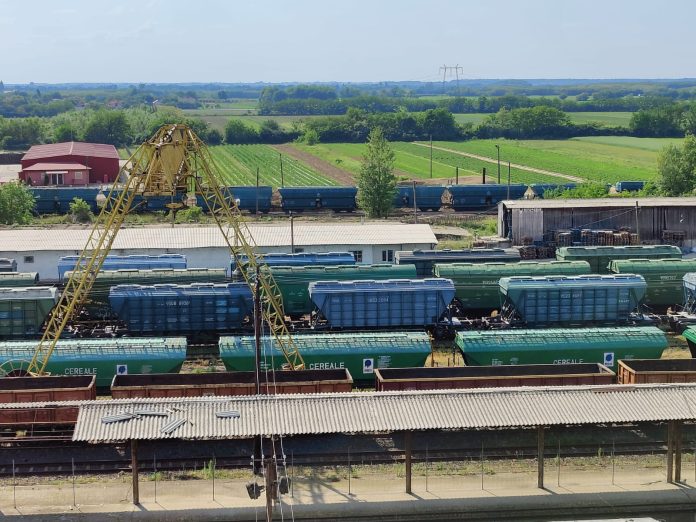 The government in Chișinău has approved the new Moldova-Ukraine rail transport protocol, which simplifies transit procedures for freight trains.
The government in Chișinău has approved the new Moldova-Ukraine rail transport protocol, which simplifies transit procedures for freight trains.
The amended protocol to the Agreement between Moldova and Ukraine on rail transport activity was signed in Chisinau and Kiev on 27 April 2023 by Moldovan Minister of Infrastructure and Regional Development Lilia Dabija and Deputy Prime Minister, Minister of Development of Communities, Territories and Infrastructure of Ukraine Oleksandr Kubrakov.
The document provides for the simplification of procedures for the transit of goods by rail through Ukraine to Moldova and Romania and through Moldova to Ukraine and Romania, which will make it possible to increase the volume of goods transported by rail.
In particular, the protocol intervenes with changes concerning the elimination of the control of customs and border authorities of Ukraine at the Reni station, and the changes will allow to reduce the time of transport of goods from/to the Giurgiulesti port complex or Romania and will have a positive impact on the final cost of goods exported/imported by beneficiaries from the Republic of Moldova, reducing transport costs, the Ministry of Infrastructure and Regional Development in Chisinau said in a statement.
Moldova-Ukraine rail transport protocol will change logistics chains
At the same time, logistics chains will be modified by redirecting freight transport from road to rail. The main gain is the reduction of traffic on national public roads, which will lead to an increase in the volumes of goods in transit on the territory of the Republic of Moldova and will have a positive impact on the national economy of the country.
Also, following the entry into force of the Protocol, seasonal rail traffic jams at Galati (south-eastern Romania), Giurgiulești, Etulia, Basarabeasca (Republic of Moldova) and Reni (Ukraine, Odessa region) stations, which negatively influence the cost of logistics during the harvest and export of cereal products, are to be reduced.
Share on:



